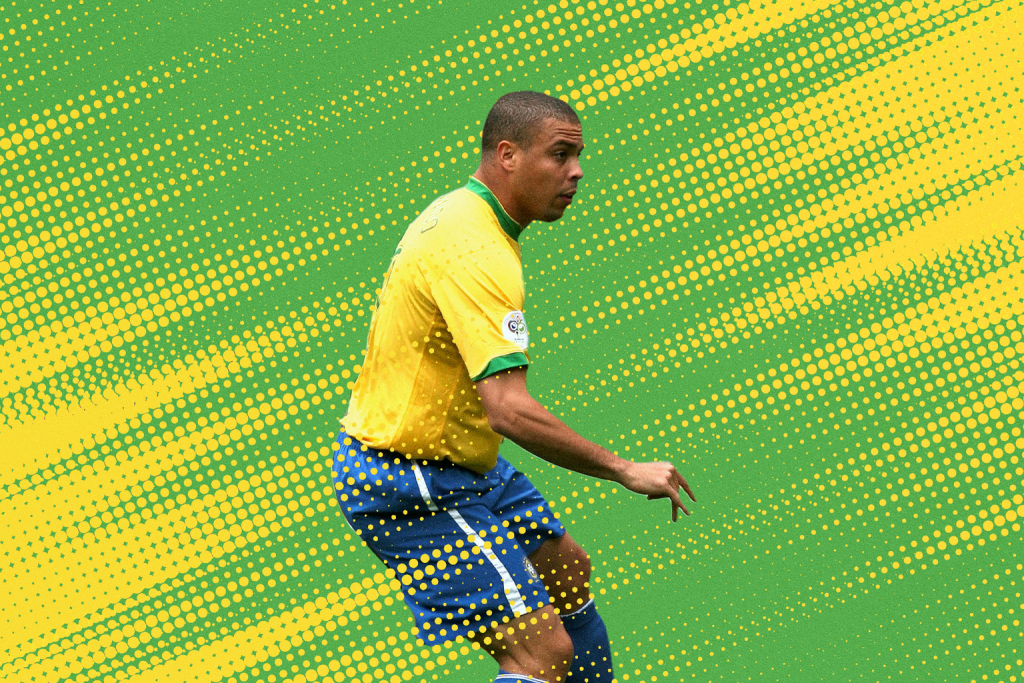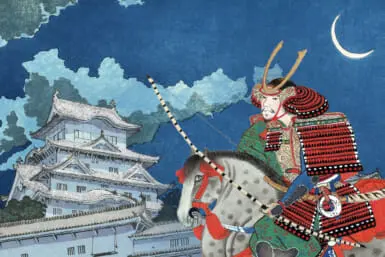With the Japanese Grand Prix set to take place at Suzuka Circuit this weekend, we thought we’d take a look back at some historic international sporting moments that have occurred in Japan. Our latest list of seven includes Brazilian Ronaldo displaying why he was once the best striker on the planet, the greatest long jump final of all time and the biggest upset in boxing history. We begin, though, with a super sprinter from the 1964 Summer Olympics.
1. Hayes’ Heroics
In contrast to the spectator-less 2020 Games, the 1964 Tokyo Summer Olympics was a joyous and lively event with crowds packing out stadiums. Standout performances came from the likes of Dawn Fraser and Don Schollander in the pool, gymnasts Vera Caslavska and Larisa Latynina, marathon runner Abebe Bikila and boxer Joe Frazier, who won gold with a broken thumb. There was also much to celebrate for the home fans, particularly the women’s volleyball triumph. The athlete who left the biggest impression on the Games, however, was American sprinter Bob Hayes.
Running from lane one in borrowed spikes on a badly chewed up track, Hayes clocked a world record-equaling time of 10.06 seconds to win the 100m. His performance in the 4x100m relay was even more impressive. Receiving the baton in fifth place, he surged past everyone in an anchor leg that was hand timed between 8.5 and 8.9 seconds. Prior to the race, France’s Jocelyn Delecour reportedly told US lead-off runner Paul Drayton, “You can’t win, all you have is Bob Hayes.” Afterwards Drayton replied, “That’s all we need pal.” It was Hayes’ last race. Aged just 21, he made the switch to American football, becoming a wide receiver for the Dallas Cowboys. He remains the only person to win an Olympic gold and a Super Bowl Ring.
2. Fuji’s Title Decider
Fuji Speedway was the setting for the finale of the 1976 Formula One Championship. Going into the last race, Austria’s Niki Lauda held a three-point lead over Britain’s James Hunt. It was set for an enthralling climax to what had been an eventful season. Earlier in the year, Hunt was disqualified after winning the British Grand Prix for using a spare car, costing him nine points. In the following race in West Germany, the clinical Lauda lost control at high speed and crashed into the barrier. The car caught fire and the Austrian ended up in hospital fighting for his life. Incredibly, he was soon back behind the wheel.
While Lauda only missed two races, Hunt took advantage of his absence to cut the lead, putting himself in contention for the decider in Japan. Torrential rain put the race in doubt, but organizers decided to go ahead to the frustration of several drivers including Lauda. The Austrian withdrew after two laps, later saying his “life was worth more than a title.” Hunt, now needing a top-four finish, dropped down to fifth due to tire problems, but overtook two drivers towards the end to seal a championship that became the focus of Ron Howard’s 2013 film Rush, starring Chris Hemsworth and Daniel Brühl.
3. Douglas KO’s Tyson
It was supposed to be a straightforward victory for Mike Tyson. His bout with Buster Douglas at the Tokyo Dome in 1990, was seen purely as a warmup for his highly anticipated clash with No.1 contender Evander Holyfield. Instead, it turned out to be one of the biggest upsets in sporting history. Tyson entered the ring with a 37-0 record, including 33 wins by knockout. In his match before Japan, he floored Carl Williams in just 93 seconds. A similar result against 42-1 outsider Douglas, who was left devastated by the death of his mother three weeks before the fight, was expected.
It was also a difficult time for Tyson following his highly publicized divorce. According to singer Bobby Brown, he and the heavyweight champion partied extensively the night before the contest. Brown wrote in his autobiography that Tyson described Douglas as “an amateur,” he could beat even if he “didn’t sleep for five days.” He was wrong. The challenger had the better of the opening rounds. Tyson was, of course, still dangerous and put Douglas down in the eighth. Yet, the underdog recovered and floored his illustrious opponent in the 10th. The champ was on the canvas for the first time in his career and couldn’t get up. Douglas had shocked the boxing world.
4. Powell vs. Lewis
The long jump final at the 1991 World Championships in Tokyo is considered by many to be the greatest ever head-to-head duel in track and field history. Carl Lewis went in as the overwhelming favorite, having dominated the event for a decade. He won an incredible 65 consecutive competitions, including two Olympics and two world championships. Mike Powell, silver medalist at the Seoul Games, was seen as his biggest rival. Yet, to overcome the best athlete on the planet, he would need an out-of-this-world performance. And boy did he produce it.
Lewis had already won the 100m in a world record time. His next target was to surpass Bob Beamon’s long jump record of 8.90m which had stood for almost 23 years. His third jump was a personal best of 8.83m, followed by 8.91m on his fourth. It was the longest leap in history yet didn’t count as the world record as it was wind-aided. Victory looked certain. Then came Powell’s fifth jump. An astonishing 8.95m and wind-legal. Lewis responded with leaps of 8.87m and 8.84m, two of the best jumps ever, but it wasn’t enough. Powell was the new world champion and world record holder. Nobody has come close to beating it since.
5. Maier’s Miraculous Recovery
Heading into the 1998 Nagano Winter Olympics, Austrian Hermann Maier was regarded as the world’s best alpine skier. His rise to the top, though, was far from straightforward. Despite being accepted into the national ski academy at 15, he lasted just one year due to his size. Maier weighed just 110 pounds, which was considered too light for downhill skiing. Refusing to give up, he continued practicing while earning a living as a bricklayer. The opportunity to represent his country eventually came at the age of 23. Two years later, he qualified for the Olympics and was tipped to win three golds.
He began in the downhill race. Traveling at a speed of 120 kilometers per hour, Maier lost his grip and flew through the air for three and a half seconds. It looked like a horrific crash, but then he got up and waved his index finger, suggesting he was fine. Remarkably, the “Herminator” was back performing soon after, winning golds in the Super-G and the giant slalom event. A truly amazing recovery. The other big story of the Games was the battle between American duo Michelle Kwan and 15-year-old Tara Lipinski in women’s figure skating. The latter edged the contest, becoming the youngest Olympic champion in the competition’s history.
6. Ronaldo’s Redemption
It was the night before the 2002 FIFA World Cup final between Brazil and Germany in Yokohama and one of the game’s finest ever players couldn’t sleep. It was no surprise. Four years earlier, on the day of the final in Paris, Ronaldo Nazario suffered a severe fit. Frothing at the mouth, his whole body convulsed. Initially left out of the side, he was reinstated at the last minute. The game, though, passed him by as Brazil lost 3-0 to France. In the next few years, Ronaldo’s career was blighted by injuries, most notably a complete rupture of his kneecap tendon. Fortunately, he recovered in time for the World Cup.
Ronaldo lit up the tournament in Japan and Korea alongside teammates, Ronaldinho and Rivaldo. Standing in their way in the final was the world’s best goalkeeper in Oliver Kahn. He’d conceded just one goal in the competition to Ireland’s Robbie Keane. Against Brazil, however, it was his mistake that led to the opener. He spilled Rivaldo’s shot and Ronaldo pounced, making it 1-0. The man dubbed “The Phenomenon” then added a second with a neat finish following a clever dummy from Rivaldo. The game was sewn up. Brazil had their fifth World Cup and Ronaldo finished top scorer with eight goals.
7. Captain Marvel
From Japan’s emotional victory over Scotland to England’s pulsating win against the All Blacks, the 2019 Japan Rugby World Cup produced many special moments. The most iconic arguably came at the end as Siya Kolisi lifted the Webb Ellis trophy for South Africa. The first black man to captain his country, his journey to the final was an inspiring one. Brought up in poverty, as a child he could feel his “intestines twisting in the middle of the night” due to a lack of food. Attending his first provincial trial, he wore boxer shorts as he had no kit. Now, he was holding aloft the most prized possession in rugby.
The Springboks began the tournament with a defeat to New Zealand, but then strolled through the group before beating the valiant hosts in the quarterfinals. That was followed by a narrow victory over Wales leading to a showdown with England and a repeat of the 1997 final. Eddie Jones’ men were slight favorites having dismantled the Kiwis a week earlier. Yet, it was South Africa who dominated, winning 32-12 with tries from Makazole Mapimpi and Cheslin Kolbe. Seeing Kolise get his hands on the trophy felt as significant as 24 years earlier when Nelson Mandela handed the same cup to Francois Pienaar.









